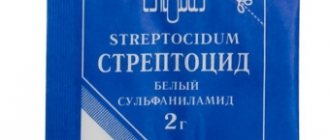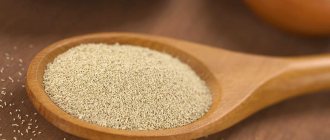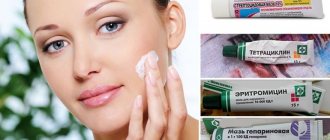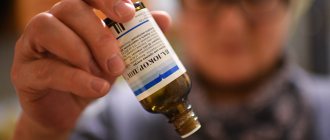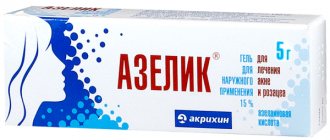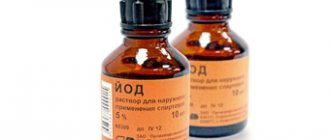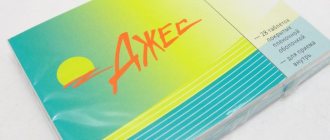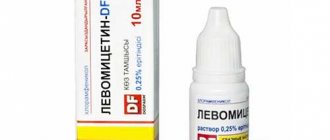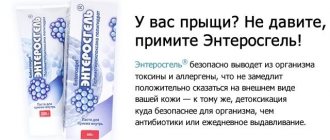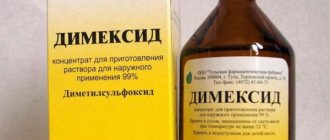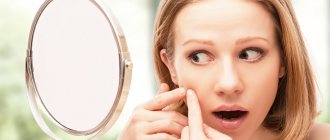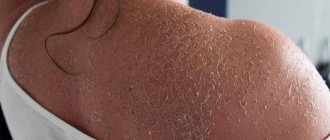Pros and cons of hormonal contraceptive drugs
A convenient form of use, protection from unplanned pregnancy, the ability to relax and have fun are some of the few advantages of hormonal drugs. Meanwhile, a number of advantages of oral contraceptives are accompanied by an impressive number of side effects, which often do not allow a woman to lead a full sexual life. For example, acne popping up from birth control pills is a common occurrence. What to do in case of such a reaction of the body, how to deal with rashes?
Protecting your body from the consequences of taking hormonal drugs is not as difficult as it might seem at first glance. Before using oral contraception, it is important to carefully read the instructions for the drug you are using. But even if the list of side effects contains a manufacturer’s mention of the possibility of acne, you should not immediately refuse birth control pills.
Often, an increase in sebum production and, as a result, the occurrence of acne is a temporary reaction of the body to a new drug. Doctors assure that as soon as a woman’s hormonal background adapts to the drug, the functioning of the body’s main systems will return to normal. It takes about 3 months to adapt to hormone-containing drugs.
Facts about hormonal contraception
Once you decide to take birth control pills for acne and acne, you should learn a few facts about them:
After a detailed diagnosis, the doctor may prescribe contraceptives for the treatment of acne
- The elasticity of the skin increases. COCs contain estrogen. It prevents age-related changes. Pores narrow and the amount of collagen increases.
- Combats acne problem. Within a year the result is noticeable.
- Hair condition improves. Hair becomes less greasy and acquires a healthy shine due to the normal functioning of the sebaceous glands. The antiandrogenic properties of the drugs prevent the appearance of hair in areas of the body that are not typical for women.
- Body weight is normalized. Modern drugs do not have such side effects. Liquid is not retained in the body, so there is no need to be afraid of gaining extra pounds.
- The likelihood of cancer decreases. People taking COCs are less likely to get ovarian cancer.
But a positive effect is achieved only with the correct selection of the drug. During the interview with the patient, the doctor learns about hereditary diseases that may be contraindicated for taking COCs.
What side effects can there be from birth control pills?
If, after the period of adaptation, no changes for the better have occurred, or, on the contrary, the situation has worsened significantly, it is worth taking more active actions. An indisputable indicator that an alternative to the drug used should be found is not only acne. Birth control pills that are not suitable for a woman’s individual needs can cause serious disruptions in the functioning of the body. Indisputable signs signaling this include:
- the appearance of bleeding not associated with menstruation after three months of addiction to the drug;
- regular headaches and dizziness;
- the severity of symptoms of candidiasis, which does not decrease even after treatment with antifungal drugs;
- swelling of the limbs;
- metabolic disorders;
- decreased libido or complete lack of sexual desire;
- vaginal dryness;
- intense hair loss.
Unfortunately, not a single highly qualified gynecologist with many years of experience can accurately select the contraceptive pills that are suitable for a particular patient. Acne after a certain period of use can only tell a specialist whether it is advisable to continue prescribing the drug to a woman.
In addition, the possibility of individual intolerance to individual components of the drug cannot be excluded. Pimples can be the same symptom of an allergic reaction as hives, skin hyperemia, itching or swelling, and therefore cannot be ignored. To confirm intolerance to the drug, doctors recommend taking a blood test, which will show whether the patient produces antibodies to allergens in the required quantity.
Kinds
To choose the right remedy, you should definitely visit a doctor. A specialist will help determine the source of acne and select the optimal treatment. As a rule, pills, topical medications and diet are used.
Several types of medications are used in the fight against acne:
- antibacterial agents;
- hormonal medications;
- retinoids;
- medicines that cleanse the body.
Each group allows you to deal with specific causes. Self-medication is strictly prohibited.
Antibiotics
This type of medication destroys active pathogenic staphylococci and streptococci, which often cause acne.
But if therapy is too long or large doses are taken, dangerous consequences for the body can develop. Antibacterial agents should only be prescribed by a specialist as a last resort.
Taking pills is carried out only under the supervision of a doctor. They are prescribed when local drugs do not cope with their task.
Levomycetin
It helps eliminate acne caused by bacterial activity. Also, the powder product is often added to masks.
Levomycetin is a broad-spectrum medicine, but it can cause an allergic reaction, so before use, a sensitivity test to the components of the drug is carried out.
Trichopolum
An antibacterial drug that also helps fight acne. Its main active ingredient is metronidazole.
Treatment should be carried out over a course of 10 days; it is prescribed only after examination by a doctor and receipt of diagnostic results confirming the advisability of using an antibiotic.
Doxycycline
The drug effectively fights acne. Its dose according to the instructions should not exceed 300 mg in 5 days. Treatment lasts 12 weeks.
The antibiotic has serious contraindications:
- lack of lactase;
- liver diseases;
- diabetes;
- leukopenia;
- age under 12 years.
Sometimes, during Doxycycline therapy, headaches, nausea with vomiting, allergic reactions, anorexia, diarrhea, and abdominal pain develop.
Unidox Solutab
The drug may only be taken as prescribed by a doctor and in the dosage prescribed by him. It works well against acne on the face. The medicine dissolves in water. It is not recommended to drink it before bed.
Contraindications include:
- liver or kidney diseases;
- children under 8 years of age;
- bearing a child or breastfeeding;
- high sensitivity to antibiotics of the tetracycline group.
After administration, the following side effects may occur:
- nausea;
- diarrhea;
- peptic ulcer;
- allergic reactions;
- change in the shade of tooth enamel;
- dizziness.
Minolexin
This antibiotic has many indications, one of which is the treatment of acne. In this case, drink 50 mg capsules once a day after meals.
The maximum daily dosage should not exceed 400 mg. The full course for eliminating acne is 6 – 12 weeks.
Retinoids
Retinoids are a group of drugs with multiple forms of vitamin A. They are effective in the fight against acne, especially for teenagers.
But they also have some side effects:
- severe allergic reactions or inflammation;
- dysfunction of the gastrointestinal tract;
- disorders in the musculoskeletal system.
The principle of operation of retinoids is based on the effect of vitamin A derivatives on the body. They act directly on the sebaceous glands, normalizing their work, since it is when it worsens that acne appears. Thus, the skin becomes smooth and acquires a healthy appearance.
But due to the dangerous side effects of the drugs, their treatment is supervised by a specialist, and you will need to strictly follow his recommendations.
The most famous retinoid is Roaccutane - it copes well with teenage acne.
Also included in this group of drugs are:
- Isotretinoin.
- Retinol Palmitate.
Roaccutane
To treat acne, Roaccutane should be taken with food. The dose is selected by the doctor in accordance with the characteristics of the patient’s body. The course can last up to 24 weeks depending on the severity of the lesion.
The medicine is constantly in the body and continues to actively influence the pathology even for 8 weeks after completion of administration. In this regard, re-therapy is not carried out immediately.
After completion of treatment, operations and cosmetic procedures are prohibited for at least a year. Analogues of the drug include Sotret.
Taking Roaccutane is prohibited in the following cases:
- excess vitamin A in the body;
- pregnancy, breastfeeding;
- diabetes;
- children under 12 years of age;
- addiction to alcohol;
- metabolic disorders.
In case of an overdose of the drug, the following develops:
- nausea and vomiting;
- headache;
- limb spasms;
- diarrhea or constipation;
- pancreatitis.
Video: After treatment with Roaccutane
Brewer's yeast
Doctors often prescribe brewer's yeast for the treatment of acne. They add iron, zinc, selenium and other trace elements that will improve the condition of the skin. The tablets are enriched with amino acids and vitamins.
Brewer's yeast does a good job of eliminating acne, but the main problem with treatment with it is excess weight gain. Because of this, the use of the product is carried out only under the supervision of a doctor.
Brewer's yeast is used to eliminate acne in the following cases:
- lack of vitamins and minerals in the body;
- disruption of the functioning of the gastrointestinal tract.
The product helps to achieve the following positive effects:
- eliminating acne;
- normalization of blood flow:
- preventing the proliferation of pathogenic bacteria;
- restoration of proper functioning of the sebaceous glands;
- normalization of protein and fat metabolism;
- tissue regeneration.
Brewer's yeast is strictly prohibited if a person has a tendency to gain excess body weight, if there is an excess of vitamins E and B12 in the body, if acne appears for reasons not related to intestinal function.
Aspirin
Sometimes aspirin works much better than expensive acne medications. Its effectiveness is explained by the acetylsalicylic acid in the composition. It is characterized by good anti-inflammatory properties.
Masks with Aspirin help relieve swelling and inflammation, gently exfoliate the skin of the face, removing the top layer of dead skin cells without affecting healthy skin.
To implement the procedures, you need aspirin in tablets, and not its effervescent forms. Masks become an excellent peeling agent, quickly cleanse the skin of the face and help narrow pores, stop inflammation and are an excellent preventive measure for the re-formation of acne.
The mask dries out pimples and accelerates their ripening process, clearing clogged pores.
For masks with Aspirin, the most suitable component for your skin type is used as a base, for example, yogurt, natural oil, cosmetic clay, vitamins in oil or honey.
A noticeable effect appears within 4 hours after the procedure. For visible results, you need to do at least 8 procedures - 1 or 2 times a week.
Taking Aspirin orally has no effect on acne. A mask with powdered tablets is applied for 15 to 20 minutes.
To cleanse the body
When a lot of toxins have accumulated in the body, rashes appear on the face; cleansing preparations will be needed for treatment.
They help eliminate bacterial toxins, alcohol metabolism and breakdown products, pathogenic microbes, allergens and heavy metal salts.
Coal
Activated charcoal for the treatment of acne is drunk on an empty stomach in the morning - at the rate of one tablet per 1 kg of weight. It is also permissible to take 2 pieces three times a day, a few hours before meals.
Acne can be treated with activated charcoal for adults and children over 12 years of age. The course of therapy should last from 2 weeks to 2 months.
Tablets are contraindicated for people prone to intestinal obstruction and gastric bleeding.
Read how to get rid of acne on your face at home. About the stick for squeezing out pimples. More details here.
Why do acne appear after stopping birth control?
Side effects of an oral contraceptive are possible not only during its use. Acne after stopping birth control pills is a fairly common problem. When a woman starts taking pills, the body needs time to get used to their effects, and the process of drug withdrawal is similar: it does not always go unnoticed for the female body.
In order to restore normal hormonal levels as quickly as possible, the patient should not abruptly end the course. Many girls complain: “I stopped taking birth control pills - acne appeared.” In fact, this happens due to a sudden deficiency of hormones that have become habitual to the body. Along with rashes, other unpleasant signs often appear:
- greasy shine;
- enlarged skin pores;
- black dots;
- pustules and acne.
Recommendations
Before starting acne treatment with birth control, you should consult your doctor. Indiscriminate use of pills can cause irreparable consequences:
- Hormonal imbalance.
- Diseases of the cardiovascular system.
- Weight gain.
- Decreased sexual desire.
- Deterioration of skin condition.
Competent selection of COCs, pharmacological innovations and a wide range of these products for the treatment of rashes - all these factors make it possible to achieve not only effective, but also lasting results in the treatment of hated pimples.
It is not recommended to use contraceptives for a long time. If after 2-3 months of use the acne does not disappear and the condition of the dermis does not improve, you should discuss the treatment regimen with your doctor. Self-medication is contraindicated. Hormones require an individual approach. Just because a drug works for someone you know doesn't mean it will work for you too.
Oral contraceptives are allowed for girls after they reach the age of 15 when menstruation begins. We should also not forget that the appearance of acne can be triggered by the abolition of contraceptives. The body is rebuilt, hormonal levels change. To sum it up, we can say that birth control is indeed effective against acne. But treatment must be treated with extreme caution, trying not to harm the body.
How to get rid of acne after hormonal contraceptives?
Acne from birth control pills is treated in various ways, but before you begin to eliminate the external defect, you should consult with a specialist about the further use of the hormonal drug. Otherwise, therapy may not bring the expected result.
For extensive and deep rashes, it is better not to self-medicate, but to contact a professional cosmetologist who will find a solution and offer the following procedures:
- laser exposure to the skin;
- peeling;
- mechanical cleaning of the epidermis.
Home remedies for acne and skin problems
At the same time, professional cosmetic formulations are recommended for the treatment of acne. Simple home remedies can be a more affordable alternative. By the way, most of them are suitable for regular skin care. For example:
- Tar soap. Produces a drying effect, has disinfectant properties, relieves inflammation and eliminates excess sebum. It must be used twice a day, foaming on the face, and then rinsed off with warm water.
- Tea tree oil. A natural antimicrobial agent helps relieve redness, speed up the launch of regeneration processes, and prevent infection. Before use, the oil is diluted with water in equal proportions and applied to problem areas 2-3 times throughout the day using a cotton sponge.
- Agave. Aloe juice has a natural antibacterial effect, relieves itching and helps tighten pores. To treat acne from birth control pills, it is necessary to spread the freshly prepared pulp of the plant onto the inflamed areas, leaving them for 10-15 minutes to act.
- Calendula. Regardless of the method of application, calendula tincture effectively copes with skin defects. It can be applied pointwise, which is especially convenient for single rashes, or zoned - when treating large affected areas of the skin.
Which acne treatments are most effective?
Effectiveness is a generalized concept, since now even the most well-known drugs are not effective for a small number of people, or are generally harmful. What suits one person may be harmful and produce the opposite result for another.
Therefore, never treat yourself! You will only waste time, missing which the disease will worsen even more. Be sure to contact a dermatologist.
While the role of sulfur in skin care has been noted for centuries, it cannot rightfully be considered the most effective way to treat acne. Sulfur for acne is not a panacea!
Due to numerous negative side effects, many patients choose to use other treatment options, sometimes even more effective ones. These include treatment with retinoids, salicylic acid, benzoyl peroxide and antibiotics. Very often these drugs are combined together.
Tips for using oral contraceptives
Not every woman who abruptly stopped taking birth control pills developed acne. After discontinuation of hormonal medications, the appearance of rashes can be avoided by following simple recommendations.
Firstly, you should not buy oral contraceptives without consulting your doctor. Only a gynecologist, based on the results of the examination and tests of an individual patient, can choose the right remedy. You should not run to the pharmacy after television advertising or advice from friends: a drug that suits one woman may not always suit another.
Secondly, experts advise taking breaks from using hormonal pills, replacing them with other methods of contraception. In this case, it is highly undesirable to suddenly stop taking the medication. Doctors consider the ideal scheme for stopping taking oral contraceptives to be: monthly reduce the dosage of the drug by a quarter. This will protect you from the side effects of hormonal changes.
Why do acne not appear on all parts of the body?
Sebaceous glands, which produce sebum, are present on almost the entire surface of the skin. Their structure and functions are closely related to hair follicles, so they are usually combined into a single structure - the pilosebaceous follicle.
With acne, not all pilosebaceous follicles are involved in the pathological process. For example, acne does not appear on the stomach, back of the hands or legs. This is explained by the fact that some of the sebaceous glands have receptors that are sensitive to male sex hormones (androgens), and some do not have such receptors. Acne forms only in those follicles whose sebaceous glands respond to androgen stimulation. These are relatively large glands, consisting of several lobules and associated with short and thin vellus hair. The largest number of such glands are located on the head, on the chest in the décolleté area, on the back and on the upper part of the shoulders. These areas of the body are called seborrheic zones.
The most popular birth control pills
To choose the right contraceptive pills, you need to take into account every detail, starting with the patient’s age, the presence of a regular sexual partner and the frequency of sexual intercourse. In addition, it matters whether the woman has given birth. Medicines that prevent unwanted pregnancy are classified by dosage. Microdosed ones are considered the most effective drugs - they are suitable for women of all ages. These include:
- "Janine."
- "Yarina."
- "Jess."
- "Midian."
"Janine" is a low-dose hormonal drug
“Janine” is a birth control pill that, according to reviews, causes acne extremely rarely. The medicine has a gentle effect on the female body on the principle of inhibiting the ovulation period. A distinctive feature of Janine pills is the presence of the hormone dienogest in their composition.
In addition, this drug is prescribed by gynecologists for diagnosed endometriosis, which can reduce the amount of menstrual flow and prevent the development of iron deficiency anemia.
"Yarina" and "Jess"
An analogue of the drug "Zhanin" is the low-dose contraceptive pill "Yarina". This oral contraceptive will help get rid of pimples and acne. It is believed that it neutralizes the excessive effects of male hormones in a woman’s body. Birth control pills "Jess" have the same effect. Acne from them as a side effect appears as a result of individual intolerance to the synthetic gestagen drospirenone. Long-term use of the drug reduces the risk of developing cancer of the uterus, appendages, mammary glands, and prevents inflammatory processes in the reproductive system.
Contraindications
It is better to refuse contraceptives:
- in adolescence;
- for liver diseases;
- during pregnancy.
Despite the effectiveness in improving the condition of the skin, negative consequences are also possible:
- Fluid is retained in the tissues, so the legs may swell. For this reason, a person may feel like he has gained weight.
If you identify any side effects or suspicious symptoms, the list of which can be found by reading the instructions for the COC, be sure to inform your doctor about them
- Blood pressure rises.
- Thrombosis with increased estrogen levels.
- Decreased sexual desire.
- Pain in the head, reminiscent of a migraine attack.
Before use, weigh all the pros and cons. Reviews about the method of combating rashes are varied. There is no definite answer due to the uniqueness of each human body. According to statistics, with the correct selection of the drug, the condition of the skin improves significantly.
"Midiana": advantages of hormonal contraceptive
Another widely used remedy that deserves attention is Midiana (and not Median, as many women mistakenly call this remedy). It is also used to protect against conception and to improve skin condition. At the same time, the drug helps to correct the menstrual cycle and eliminates dysmenorrhea.
Acne from birth control pills "Median" is a rare and irregular phenomenon, observed, as a rule, at the stage of addiction to the drug. In most cases it passes without leaving a trace.
What is sulfur?
It appears as a yellow crystalline solid. Although it is not soluble in water, sulfur is one of the most versatile elements in forming compounds.
It reacts and forms compounds with all elements except iodine, tellurium, platinum, gold, iridium, nitrogen and noble gases.
Sulfur is abundant and found throughout the universe, but is very rarely found in pure, uncombined form on the surface of the Earth.
As a chemical element, it is present in sulfate and sulfide minerals. This occurs in the dissolved ions of many waters. In addition, it is an important component of many atmospheric, underground and dissolved gases.
Sulfur is an essential element in all living things and is found in the organic molecules of all fossil fuels.
About 90% of sulfur is used to produce sulfuric acid. The rest is used to produce a variety of products: hydrogen sulfide, insecticides, pharmaceuticals, soap, textiles, paper, rubber, gunpowder, dyes and food preservatives.
Sulfur is extremely common and is present everywhere:
- it is the 11th most abundant element in the human body;
- 6th most abundant element in seawater;
- 14th most abundant element in the earth's crust;
- 9th most abundant element on all of Earth;
- 10th most abundant element in the universe.
According to the International Mineralogical Association database, more than 1,000 minerals contain sulfur in their composition. This characterizes the ability of sulfur to form compounds with many chemical elements.
As a result, sulfide, sulfarsenide, sulfosalt, sulfate and hydrosulfate minerals are formed. For example, bornite, pyrite, cobaltite, arsenopyrite, proustite, pyrargyrite, anhydrite, celestite, gypsum, kieserite, epsomite, etc.
Diagnosis before prescribing birth control pills
It is impossible to reliably avoid the occurrence of pimples and acne after using hormonal contraceptives. No one can know how the body will react to a particular drug. However, every woman can protect herself by first going through some diagnostic procedures. Before purchasing birth control pills, it is advisable to:
- come for an examination to a gynecologist;
- conduct an ultrasound examination (to ensure the absence of neoplasms);
- pass general clinical blood and urine tests;
- take a smear for flora;
- visit a mammologist.
You should not keep silent from your doctor about your tendency to allergies, the presence of chronic cardiovascular or peptic ulcer diseases. When using prescribed birth control pills, it is extremely important to follow the recommendations of a specialist. Often, side effects in the form of skin rashes are the result of the patient ignoring the basic rules of administration (violations of the treatment regimen, decreasing or increasing the dosage, etc.).
What is the healing effect of sulfur?
Sulfur is used not only as a separate remedy, but also as part of certain preparations.
1. Stimulates the production of collagen - the main component of the structure of the skin, providing elasticity. 2. Provides a slight antiseptic effect. Allows you to slow down the proliferation of pathogenic flora on the surface of the skin, stopping the appearance of new and growth of existing acne. 3. Helps inflammatory elements mature faster. 4. Soothing effect on the skin. 5. Dries out fresh pimples and, thanks to its individual properties, removes their crust. Since the appearance of acne is promoted by problems with the function of the digestive tract and the state of the endocrine system, sulfur in the composition of preparations has a beneficial effect on these areas of the body.
